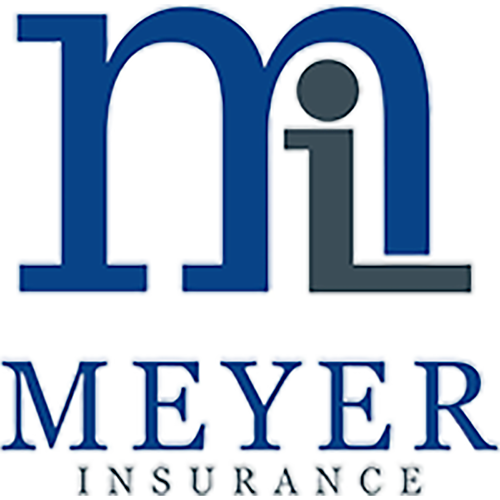Planning for the future expenses loved ones may face.
Final expense insurance for people 65 or older.
While no one wants to think about it, we will all die someday. Funeral costs and other end-of-life expenses can add up quickly, creating enormous stress for loved ones at a time when they are grieving. Final expense insurance can offer peace of mind that funds will be available to cover these costs.
Medicare does not cover final expenses.
Medicare only covers medically necessary expenses that are required for diagnosis and treatment of an illness or condition. Funeral costs are not considered medically necessary and therefore aren’t covered by Medicare. Final expense insurance offers an easy and relatively low cost way to cover these expenses, with policy benefits ranging from $5,000 to $20,000 or more.
Final expense insurance covers funeral costs.
Funerals can be very expensive, with the average cost ranging from $7,000 to $12,000. Final expense insurance, a form of permanent life insurance, can help pay for these expenses. These policies typically do not expire and have fixed premiums, as long as these premiums continue to be paid. In addition, there is usually no medical exam required, creating a simplified process for enrolling. Also, these policies are usually issued regardless of someone’s health, though the benefit amount could be graded, meaning it increases the longer the person lives. Some may also carry a cash value, allowing the policyholder to borrow against it.
Click it. Read it. Cover it.
- Click on the hotspots.
- Discover your risks.
- Get the right coverage.

When you’re retired, unable to work due to disability, or have end-stage renal disease, your options for health coverage become much more limited. Medicare is available to most people aged 65 or older who have paid Medicare taxes while working, as well as some younger people with disabilities or end-stage renal disease. The program is currently administered by the Centers for Medicare and Medicaid Services.
Perhaps one of the more surprising and often confusing things about Medicare is that it’s divided into four parts, and each part covers something different. The different parts of Medicare are Part A, Part B, Part C (Medicare Advantage), and Part D. Medicare Parts A and B are sometimes referred to as Original Medicare. Your health needs will help determine which parts you need or qualify for.
Medicare Part A covers many hospital-related expenses. These could include hospital stays, hospice, stays in a psychiatric facility, and even home health care in some instances. However, it’s important to note that there are limitations on some of the coverages, such as psychiatric care and long-term care.
You become eligible to enroll in Medicare at 65 and must enroll during specific enrollment windows. Part A is available at no cost to individuals and their spouses who have paid Medicare taxes for at least ten years. Those who cannot receive it free may be eligible for Part A coverage and pay a premium for it. Medicare Part A will pay a portion of the costs associated with a hospital stay, but there are limits and caps to that coverage based on factors like your length of stay and the treatments you receive.
Medicare Part B is perhaps easiest to understand as the opposite of Part A. It covers many medical expenses that are not associated with hospital stays, including doctor visits, some outpatient care, and more. For instance, Medicare Part B can cover ambulance rides, vaccines, and certain health screenings. Similar to Part A, there are limitations on certain coverages to take note of.
Unlike Part A, Part B requires you to pay a premium, and enrollment in the program is voluntary. Enrollment for Part B typically coincides with Part A, but you must still enroll during specific windows. Part B can cover some of the costs associated with diagnosis, treatment, and preventative care. Similar to private insurance, most preventative services are provided at no cost. However, many other services are typically subject to a deductible and coinsurance.
Also known as Medicare Advantage, Medicare Part C plans are often considered the alternative to Original Medicare. You need both Medicare Parts A and B to join a Medicare Advantage plan. Medicare Part C usually has the same rules as Medicare Parts A and B, but their out-of-pocket costs may differ, and you may have to seek different avenues for care than you would under Original Medicare. Unlike Medicare Parts A and B, Part C can sometimes offer prescription drug coverage.
If you have both Medicare Part A and Part B, you could enroll in Medicare Part D as an optional coverage through a private insurance company. Part D helps to cover some of the costs associated with prescription medication. Similar to private health insurance, the price of your prescriptions depends on a number of factors, including the formulary, the “tier” your drug falls under, the pharmacy you use, and more. You’ll pay a premium for this coverage, and charges will be subject to a deductible and coinsurance. After a certain amount is spent, you may enter the coverage gap, or “donut hole,” where the plan won’t pay any benefits. If you incur significant expenses, you may get past this gap and move into “catastrophic coverage,” where you’ll pay very little for your prescriptions.
While it may seem like Medicare covers many of your medical needs, there are some things that it doesn’t. For instance, dental, vision, and hearing visits and treatments are typically not covered. Long-term custodial care is also not covered. These health expenses would need to be paid out-of-pocket or via a supplemental insurance policy. In addition, if you’re interested in any cosmetic medical procedures or procedures outside of the US, those typically aren’t covered either.
Medicare supplement plans, also known as Medigap, are optional coverage plans available to individuals who have both Medicare Parts A and B who want to supplement their Medicare coverage. These supplement plans can help cover more of the out-of-pocket costs of your health expenses, including copayments, coinsurance, and deductibles. However, as of 2006, Medigap plans do not provide prescription drug coverage and often don’t cover long-term care, hearing, dental, or vision-related expenses
Funerals and other end-of-life expenses can be significant, costing your loved ones a lot of money. Unfortunately, Medicare only covers medically-necessary expenses, meaning those needed to diagnose or treat a condition or illness, and funerals don’t fall into that category. That’s where final expense insurance comes in. You can typically get a plan for a relatively low cost without a medical exam. Final expense insurance isn’t part of Medicare, but it can help cover expenses such as embalming, cremation, hearse fees, and more that Medicare does not cover.
Even though Medicare Part A and Medicare Advantage provide coverage for many of your hospital stay expenses, you are still responsible for some out-of-pocket costs, which can add up quickly. A hospital indemnity plan can help supplement your Medicare Part A or Medicare Advantage coverage. Although these plans will differ from one company to another, they often provide a cash benefit for every day you are in the hospital within your chosen benefit period, which can help cover the out-of-pocket costs you incur.
Unfortunately, Medicare plans only cover expenses that are considered medically necessary. That means most of your dental, vision, and hearing needs—including dental exams and procedures, vision exams and glasses, and hearing aids, for example—are not covered under Medicare, and only a handful of Medicare Advantage plans may provide this kind of coverage. You’ll need to turn to standalone plans offered by private insurance companies to fill the gaps in your Medicare plan. You can often find plans where these policies are bundled together, or you can choose to get separate plans.
The Affordable Care Act (ACA) and short-term medical plans may offer you the health coverage you need. ACA differs from short-term medical insurance, so it’s important to consider your needs when choosing between the two. ACA is subject to federal regulations that mandate minimum coverage, and you can’t be turned away because of a pre-existing condition, which can result in higher premiums. Short-term medical plans typically have lower premiums, but they have more limitations on your coverage, and you can be turned away based on your health.
What expenses are covered?
Individuals usually purchase final expense insurance with the intention that the beneficiary will use it to pay for funeral costs, outstanding debts, probate fees, or other related expenses. Funeral costs could include embalming, cremation, casket or burial vault, transportation of the body, hearse fees, cost of crypt or plot, and minister fees, for example.
Why buy final expense insurance?
People often wonder if final expense insurance is necessary if they have savings or other life insurance. Buying this coverage is another way to help plan for the future. Life insurance can take weeks or months to pay out, while funeral expenses can begin adding up immediately. Although the beneficiary has final say over how the money is used, these policies do make clear the policyholder’s intention that the funds be used for funeral and related costs.
How life insurance may help pay for expenses.
People often purchase permanent and term life insurance to help provide funds for ongoing expenses after a person dies. For example, higher life insurance amounts may be needed for a younger adult to pay off an outstanding mortgage or provide funds for the education or care of children. However, as a person ages and no longer has these anticipated expenses, they may let previously purchased insurance lapse. But, because final expense policies typically are not expensive and don’t require medical exams, securing enough insurance to cover final expenses becomes simpler.
If you’re considering a final expense insurance policy and want to see what your options are, contact us and we’d be happy to help.

Get Started Today
As an independent agency, we are here to help you find the right Final Expense Insurance coverage.
Final Expense Insurance Quote Request
As an independent agency, we are here to help you find the right coverage.
Get a Quote
It only takes a minute to get started.
- Fill out the form, we’ll be in touch.
- Review options with an agent.
- Get the coverage you need.

